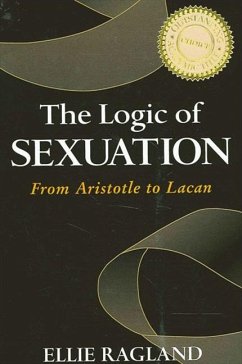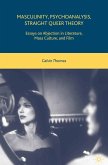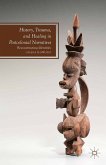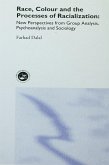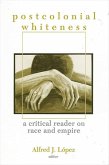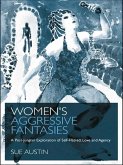2004 CHOICE Outstanding Academic Title
In The Logic of Sexuation, Ellie Ragland offers a detailed account of Jacques Lacan's theories of gender, sexuality, and sexual difference. Exploring Lacan's rereading (via Aristotle) of Freud's major essays on feminine sexuality, Ragland demonstrates that Lacanian theory challenges essentialist notions of gender more effectively than do current debates in gender studies, which are typically enmeshed in an imaginary impasse of one sex versus or interchanged with the other. Although much American feminist thought on Lacan has portrayed him as anti-Woman, Ragland argues that Lacan was, in fact, pro-Woman, as he felt that no advances in analytic cure, or in thinking itself, could evolve except by embracing the feminine logic of the "not all," with its particular modes of jouissance. Ragland also aims to make sense of the terms phallus, castration, sexuation, the object a, jouissance, and so on, in relation to the question of sexual difference. In doing so, she uncovers Lacan's theory that the learning of sexual difference is what makes it possible to think dialectically at all.
In The Logic of Sexuation, Ellie Ragland offers a detailed account of Jacques Lacan's theories of gender, sexuality, and sexual difference. Exploring Lacan's rereading (via Aristotle) of Freud's major essays on feminine sexuality, Ragland demonstrates that Lacanian theory challenges essentialist notions of gender more effectively than do current debates in gender studies, which are typically enmeshed in an imaginary impasse of one sex versus or interchanged with the other. Although much American feminist thought on Lacan has portrayed him as anti-Woman, Ragland argues that Lacan was, in fact, pro-Woman, as he felt that no advances in analytic cure, or in thinking itself, could evolve except by embracing the feminine logic of the "not all," with its particular modes of jouissance. Ragland also aims to make sense of the terms phallus, castration, sexuation, the object a, jouissance, and so on, in relation to the question of sexual difference. In doing so, she uncovers Lacan's theory that the learning of sexual difference is what makes it possible to think dialectically at all.
Dieser Download kann aus rechtlichen Gründen nur mit Rechnungsadresse in A, D ausgeliefert werden.

